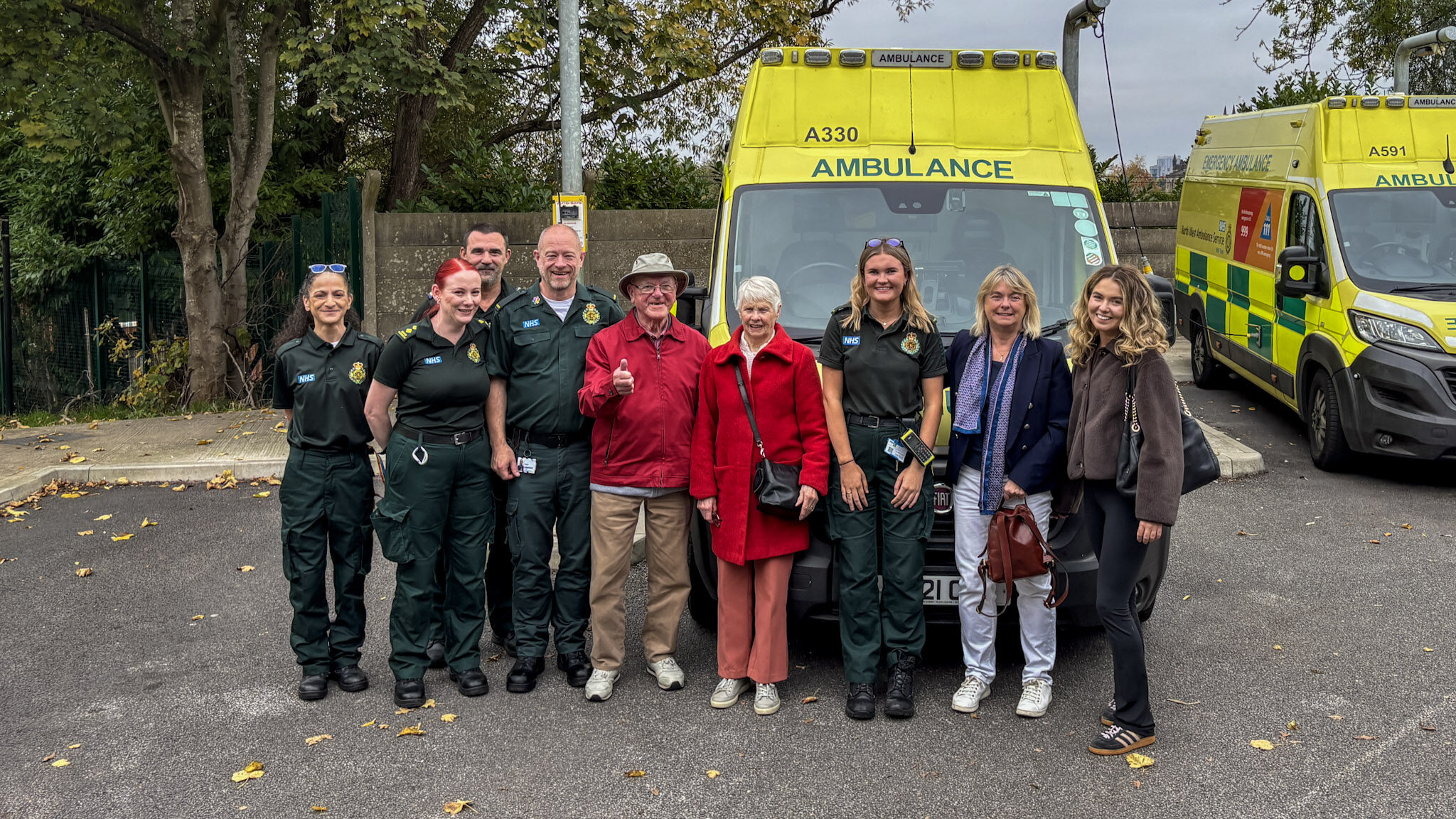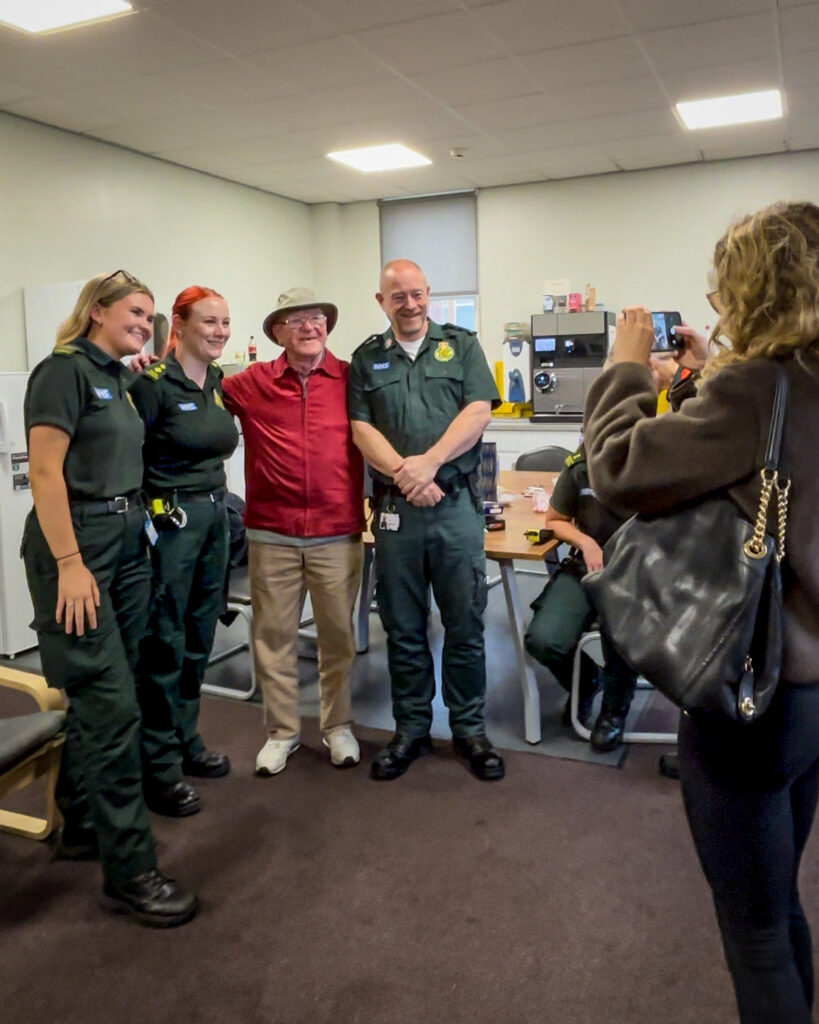
Retired engineer Ramon Hankey from Eccles was playing bowls at Winton Bowling Club in August when he collapsed. Fortunately for him, two people playing that day knew CPR and began chest compressions immediately, even fetching the nearby defibrillator and attaching it to him before paramedics arrived.
Last month, Ramon and his family were invited to Salford Ambulance Station to meet the first responders and the call handler who took the 999-emergency phone call that evening.
Clinical Lead for Greater Manchester, Sara Harris, says, “It was lovely to welcome Ramon and his family to the station. He looked so well and was in great spirits. Unfortunately, the majority of out-of-hospital cardiac arrests don’t have a positive outcome and considering Ramon’s age, it’s utterly remarkable that he’s still with us today.
“As well as the great care he received from all the medical professionals that helped him, there is no doubt the earlier CPR he received from bystanders contributed significantly to his survival.”
An ambulance crew and two solo responding paramedics rushed to Ramon’s aid. He received six shocks from ambulance crews before he showed signs of breathing again. He was taken to Salford Royal for further treatment, where he remained for the next two weeks before being discharged.

The father of three says the secret to his longevity is being active and regular gym sessions “I’ve always had a busy job, and I’ve always exercised. I’ve been going to the gym for at least 26 years, twice a week. That helps keep the body going and blood circulating.”
Although he’s still nursing some broken ribs, he’s back to his exercise regime and is looking forward to the bowling season starting again next year. He added, “It’s fantastic to see the people who saved my life. They are doing such a wonderful job, and I can’t thank them enough. It’s a memory I won’t forget!” Cardiac arrest is a leading cause of death in the UK, with survival rates decreasing by up to 10% for every minute without intervention. Immediate cardiopulmonary resuscitation (CPR) and defibrillation can more than double the chances of survival. Learning these skills is quick and easy and could make the difference between life and death.